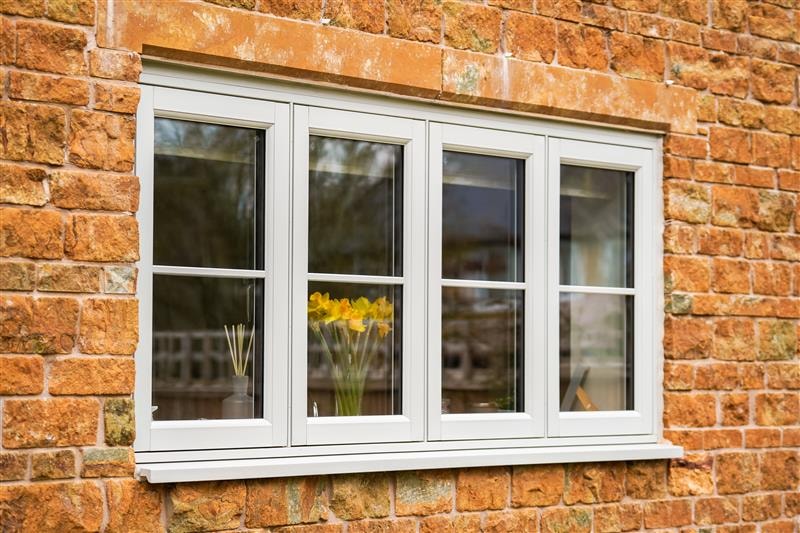Does Triple Glazing Prevent Condensation?
Condensation is one of the most common problems homeowners face, especially during the colder months. Those misty or dripping windows can make your home feel damp, uncomfortable, and even cause long-term issues like mould and mildew. So, if you’re looking for a lasting solution, you’ve probably wondered: “Does triple glazing prevent condensation?”
The short answer is yes, triple glazing will prevent condensation in your home by keeping the inner glass surface warm and dry. Let’s explore how it works, why it’s effective, and how you can make it even better with simple additions like proper ventilation and a dehumidifier.
Understanding What Causes Condensation
Condensation happens when warm, moist air inside your home meets a cold surface, such as a windowpane. The moisture in the air turns into tiny water droplets, leaving your windows foggy or wet. This typically happens because of three main factors:
- Temperature difference – the greater the difference between your indoor air and the surface of the glass, the more likely condensation will occur.
- Humidity – the more moisture there is in your indoor air, the faster it condenses on cooler surfaces.
- Poor insulation – older or single-glazed windows allow heat to escape, which cools the glass and creates ideal conditions for condensation.
That’s where triple glazing makes all the difference.
If your struggling with condensation on our windows and wondering if you can just replace your glass pane with triple glazing or do you need to replace the whole window, find out here.

How Triple Glazing Stops Condensation
Triple glazing consists of three panes of glass separated by two insulating gaps, usually filled with inert gas such as argon or krypton. These multiple layers work together to dramatically reduce heat loss and increase the internal glass temperature.
Here’s how this design prevents condensation:
- The inner glass stays warm
With triple glazing, the heat inside your home doesn’t escape easily. The inner pane remains much closer to room temperature, meaning it’s no longer a cold surface for moisture to cling to. The result? No more misting or dripping water on the inside of your windows. - Superior insulation means stable indoor temperatures
Triple glazing creates a thermal barrier that keeps the warmth in and the cold out. Because the inside of the glass never gets cold enough to reach the dew point (the temperature where condensation forms), you effectively stop condensation before it starts. - No more cold spots
If you’ve ever felt a chill near an old window, you’ve experienced what’s called a “cold zone.” These temperature differences create microclimates where moisture gathers. Triple glazing eliminates these cold zones, giving you a consistently warm, comfortable living space.
In essence, triple glazing prevents condensation because it stops the key trigger: a cold glass surface. The improved insulation means the inner glass remains warm, even when it’s freezing outside.
The Added Benefits of Triple Glazing
Aside from stopping condensation, triple glazing offers several other major advantages:
- Improved energy efficiency – you’ll use less heating to maintain a comfortable indoor temperature, lowering your energy bills.
- Enhanced comfort – no more draughts or cold air radiating from your windows.
- Noise reduction – the extra glass layer and gas-filled gaps significantly cut down outdoor noise, making your home quieter.
- Increased home value – triple glazing is a desirable modern feature that adds to your property’s efficiency and appeal.
- Better durability – triple-glazed windows are robust and less likely to suffer from condensation-related damage like mould or damp frames.
So while condensation control may be your main motivation, triple glazing brings a host of long-term benefits to your home.
How to Make Triple Glazing Even More Effective
Although triple glazing will prevent condensation on your windows, you can further enhance its performance by controlling humidity and ensuring proper ventilation. Here’s how:
- Improve ventilation
Even with perfectly insulated windows, your home still produces moisture every day, from cooking, showering, breathing, and drying clothes. To keep the air fresh and balanced, it’s essential to let that moisture escape.- Use extractor fans in bathrooms and kitchens.Keep trickle vents on your windows open.Open windows for a few minutes each day to let fresh air circulate.Good airflow helps your triple glazing work at its best by ensuring the air in your home never becomes too humid.
- Use a dehumidifier
If your home tends to hold a lot of moisture (for example, in older properties or during winter), a dehumidifier can help remove excess humidity from the air.
Dehumidifiers are particularly effective in bedrooms, kitchens, and bathrooms, rooms that naturally produce more moisture. By maintaining indoor humidity at around 40–60%, you’ll not only prevent condensation on your windows but also make your entire home feel drier, warmer, and more comfortable. - Keep your home at an even temperature
Rapid changes in indoor temperature can encourage condensation. Triple glazing keeps your glass surfaces warm, but keeping your heating consistent will make it even more effective. A steady temperature means no sudden cooling on the glass, which prevents moisture from forming.
With these simple steps, your triple glazing will not only stop condensation but also help create a healthier, more comfortable indoor environment.

Why Triple Glazing Is a Long-Term Solution
One of the biggest frustrations for homeowners dealing with condensation is that temporary fixes, like wiping down windows or using anti-fog sprays, don’t address the cause. They simply treat the symptom.
Triple glazing, on the other hand, tackles condensation at its root. By improving insulation and keeping the inside glass surface warm, it permanently eliminates the conditions that allow condensation to form in the first place.
Plus, because it reduces heat loss, triple glazing also prevents cold spots that can lead to mould or damp patches around your windows and walls. That makes it a long-term investment not just in comfort, but in the overall health of your home.
So, does triple glazing prevent condensation?
Yes, it absolutely does. By maintaining a consistently warm inner glass surface and eliminating cold spots, triple glazing effectively stops condensation from forming on your windows. You’ll no longer wake up to foggy glass, water streaks, or damp window sills.
And while triple glazing alone will do the heavy lifting, you can make it even more effective with good ventilation and a dehumidifier. Together, these small steps ensure your indoor air stays balanced, your windows stay crystal clear, and your home remains warm, dry, and comfortable all year round.
If you’re tired of dealing with condensation and want a permanent fix that also improves your home’s efficiency and comfort, triple glazing is the solution. It reduces condensation and transforms the way your home feels.
At UKO Glass we offer a range of different glazing types to fit your homes specific needs, including triple glazing to prevent condensation. Interested in finding out more? Speak to our team on 01422 861116 today!
